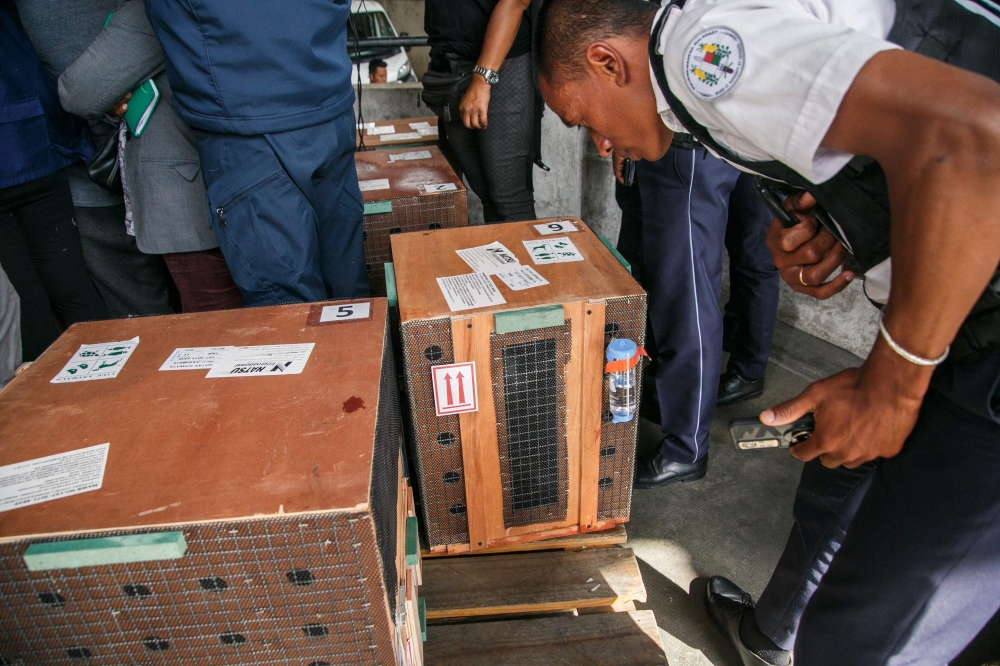- Home
- -
- News
Over 900 trafficked tortoises, dozens of lemurs journey home to Madagascar from Thailand
- admin
- 02 Dec, 2024
ANTANANARIVO (Madagascar), Dec 2 — Several dozen lemurs and more than 900 tortoises endemic to Madagascar that were trafficked to Thailand will be returned home this week, the Indian Ocean island-nation’s environment ministry said yesterday.
Sixteen ring-tailed lemurs — which are the most recognisable lemur species due to their distinctive black and white tails — arrived back in the capital Antananarivo on Sunday, AFP journalists saw.
Another 31 common brown lemurs, with yellow eyes and orange fur, will arrive in the coming week.
They will be held in quarantine and checked over by veterinarians before being released back “into their natural habitats”, the environment ministry said.
Around 914 spider and radiated tortoises, which were seized in Thailand in May in what both countries described as the largest-ever operation against the trafficking of wild animals, will also return.

This repatriation marks “the culmination of considerable efforts” led by Madagascar to “bring back these endemic species that are classified as in critical danger of extinction”, said the government.
All four trafficked species are considered endangered by the Convention on International Trade in Endangered Species of Wild Fauna and Flora (Cites).
Madagascar is home to some of the world’s richest biodiversity and numerous endemic species.
But while many of those species are relatively intact on the island, others — including more than 100 lemur species — are classified as threatened with extinction by the International Union for Conservation of Nature (IUCN).
Thailand is a notorious stopping off point for trafficked wild animals often destined for lucrative markets in Vietnam and China. — AFP



